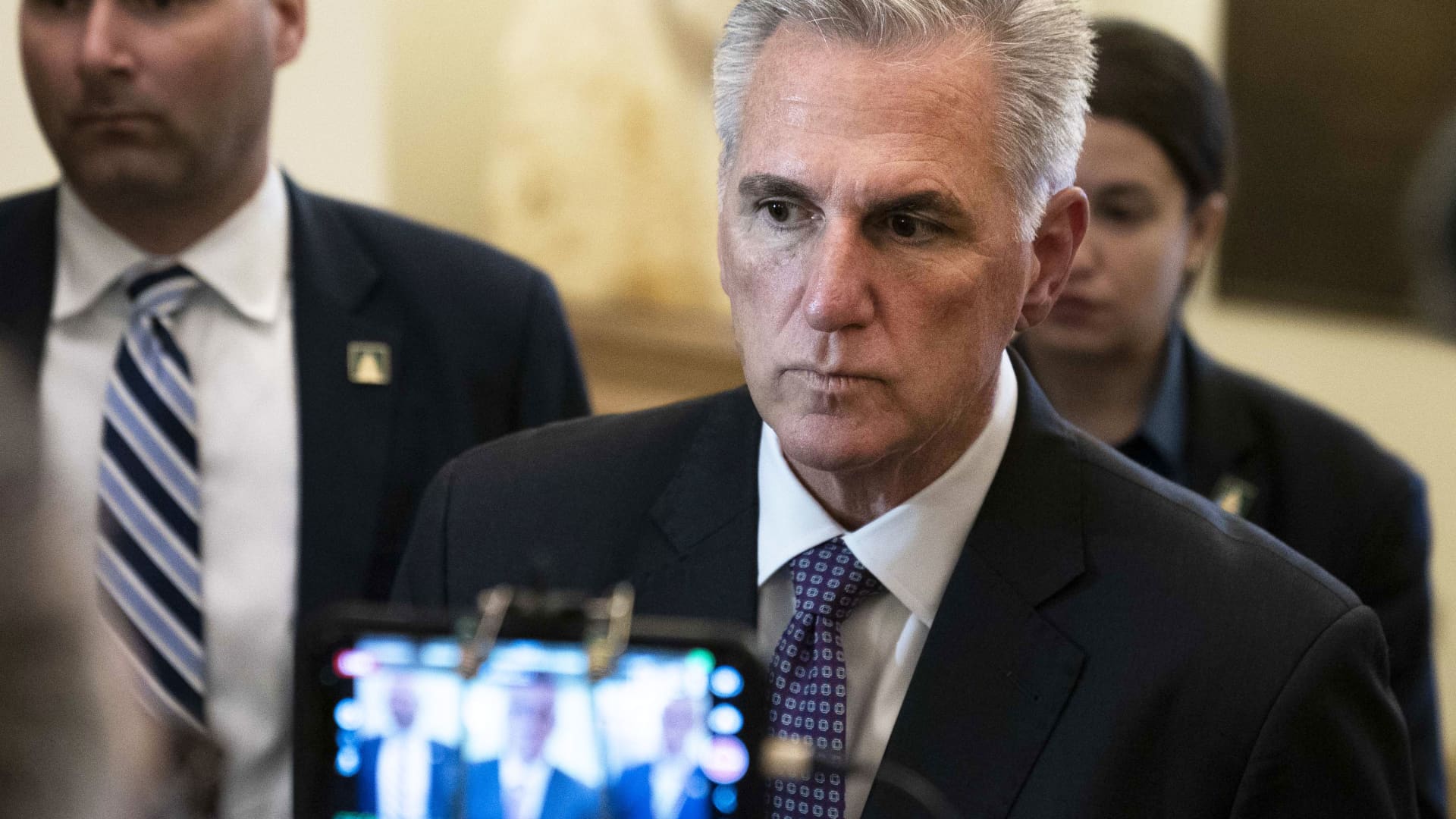Borrowers, advocates and progressives don’t want to see the payment pause on student loans come to an end.
But that is a part of the debt-ceiling deal, which could be voted on and approved this week. A provision would officially conclude the stay on the bills by September.
Advocates warn that ending the relief could trigger devastating financial consequences for millions of Americans, especially if the Supreme Court blocks President Joe Biden’s student loan forgiveness plan. The justices are likely to strike down the policy, experts say, given their conservative majority. A decision is expected in June or July.
More from Personal Finance:
Parents paying for college ‘is the norm’
4 strategies to avoid taking on too much student debt
These moves can help you save big on college costs
“This deal takes away the White House’s ability to extend the current payment pause if the Supreme Court kills the relief, making it more likely 40 million people will have to repay loans that the president promised were canceled,” said Astra Taylor, co-founder of the Debt Collective, a union of debtors.
Supporters of terminating the pause say the pandemic has mostly resolved, and that keeping tens of millions of Americans in limbo about their debt obligations could pose risks for both consumers and lenders.
Student debt payment pause is a ‘durably popular’ policy
Since March 2020, the U.S. Department of Education has allowed most people with federal student loans not to make payments on their debt without interest accruing. The bulk of borrowers took advantage of the opportunity.
“The pause on student loan payments remains one of the most durably popular pieces of economic policy because the American people recognize what Washington has long struggled to understand: The student loan system is broken,” said Mike Pierce, executive director of the Student Borrower Protection Center.
Roughly 60% of voters want the pause on student loan bills to be extended if Biden‘s sweeping forgiveness plan is blocked by the U.S. Supreme Court, a new poll finds.
The Biden administration has warned that resuming student loan payments without being able to carry out its debt forgiveness plan could trigger a historic spike in defaults and delinquencies because of the economic troubles wrought by the pandemic and borrower confusion over what they owe.
In exchange for voting to raise the nation’s debt ceiling, Republicans had demanded large cuts to federal spending.
As part of negotiations, they also sought to repeal Biden’s executive action granting student loan forgiveness. But the Biden administration refused to agree to that, and the ongoing legal battle over the plan made any legislation potentially moot.
Under deal, pause will ‘cease to be effective’
The pause on federal student loan payments will “cease to be effective” and borrowers will be required to resume paying their bills 60 days after June 30, according to the legislative text of the proposed agreement to raise the debt ceiling. Borrowers’ first due date will likely be in September, experts said.
This deal takes away the White House’s ability to extend the current payment pause if the Supreme Court kills the relief.Astra Taylorco-founder of the Debt Collective
As part of the deal, the U.S. Department of Education would also be restricted in its ability to extend this particular relief again, with another prolongment likely only possible from Congress.
Rep. Ayanna Pressley, D-Mass., filed an amendment Tuesday that would strike the provision ending the pause, but her proposed amendment was not included in the final bill.
“Republicans continue to play games with our economy, with disregard for our most vulnerable families,” Pressley said in a statement.
White House spokesman Abdullah Hasan defended the president’s negotiations on behalf of borrowers, pointing out that the administration had planned to end the pause this summer anyway.
“This agreement makes no changes to that plan,” Hasan said.
Correction: Rep. Ayanna Pressley, D-Mass., filed an amendment Tuesday that would strike the debt ceiling deal provision ending the pause on student loan payments. An earlier version misstated the day.
This is a developing story. Please check back for updates.
